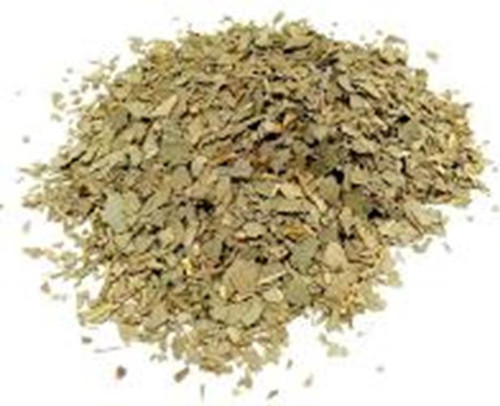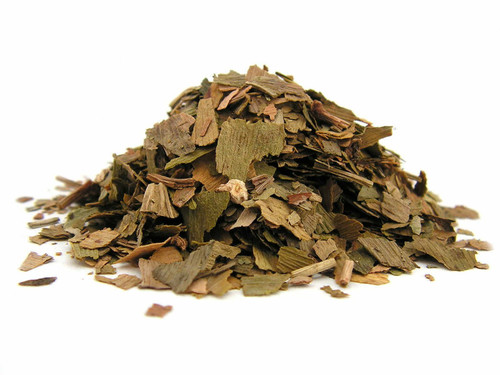1.Parsley is an excellent source of antioxidants — powerful compounds that help defend your cells against damage by potentially harmful molecules known as free radicals.
Antioxidants are thought to play a central role in health and disease, with some research indicating that they could protect against chronic conditions like heart disease, diabetes, and cancer (1Trusted Source).
According to one test-tube study, parsley extract was able to prevent DNA damage and block the spread of cancer cells — mostly due to its antioxidant content (2Trusted Source). Another study showed that treating rats with concentrated amounts of parsley increased total antioxidant status and decreased several markers of oxidative stress (3Trusted Source). In particular, parsley is a good source of flavonoids, carotenoids, ascorbic acid, and tocopherol (4Trusted Source). SUMMARY Parsley provides several antioxidants, which may help prevent damage to cells caused by free radicals and protect against chronic disease.
2. Could Help Prevent Kidney Stones Kidney stones are hard mineral deposits that form in your kidneys and cause severe, sharp pain in your back, side, and stomach. Some research suggests that parsley may aid in preventing kidney stones. One study found that treating rats with parsley helped increase urine volume, decrease urinary calcium excretion, and raise the acidity of urine (5Trusted Source). Parsley has also been shown to act as a natural diuretic, which can increase urination and prevent kidney stone formation (6Trusted Source, 7Trusted Source). Still, studies on the effects of parsley tea in humans are limited, and some research has found that it may have minimal impact on kidney stone risk factors (8Trusted Source). Therefore, further studies are needed.
SUMMARY Parsley may help increase urination, decrease calcium excretion, and raise the acidity of urine to help treat kidney stones.
However, research in humans is limited.
3. Good Source of Vitamin C Parsley is rich in vitamin C.
In fact, a 1/4-cup (15-gram) serving provides nearly 20 mg of vitamin C — about 22% of the recommended daily value (9Trusted Source). Vitamin C is an important water-soluble vitamin that also acts as an antioxidant and plays an integral role in preventing disease (10Trusted Source). Some research suggests that it protects against infections, such as pneumonia and the common cold (11Trusted Source).
It’s also involved in the synthesis of collagen — a protein found in your skin, bones, muscles, joints, tendons, and other parts of your body (12Trusted Source). Vitamin C is necessary for wound healing, nutrient absorption, and bone formation as well (13Trusted Source, 14Trusted Source).
Thus, adding parsley or parsley tea to your diet may help you reach your vitamin C needs, keeping you healthy.
SUMMARY Parsley tea is rich in vitamin C, which is needed for immune function, collagen synthesis, wound healing, nutrient absorption, and bone formation.
4. May Have Cancer-Fighting Properties
Parsley tea is loaded with antioxidants and cancer-fighting compounds. For example, apigenin, a flavonoid in parsley, has been shown to block the growth and spread of cancer cells in test-tube studies (15Trusted Source, 16Trusted Source). Luteolin is another flavonoid in parsley that may suppress tumor growth, thus aiding cancer prevention, according to some test-tube studies (17Trusted Source). What’s more, one test-tube study found that parsley extract was able to prevent DNA damage and decrease the spread of breast cancer cells by 41% (2Trusted Source). Keep in mind that most of the present research focuses on how specific compounds in parsley may impact cancer development in a lab. Additional research is needed to understand how parsley tea may affect cancer cell growth in humans.
SUMMARY Parsley tea contains compounds that have been shown to decrease the growth of cancer cells in test-tube studies.
5. Could Help Regulate Menstruation
Parsley tea is commonly used as a natural remedy to treat issues related to menstruation and hormone levels. In particular, it contains the compounds myristicin and apiole, which can influence estrogen production to help balance hormones (18Trusted Source). It’s also thought to act as an emmenagogue — a substance that stimulates menstrual flow (19Trusted Source). For this reason, parsley tea is often found in formulations designed to support healthy menstruation and prevent the overproduction of milk for breastfeeding mothers. However, research on the effects of parsley tea on menstruation and milk production is currently limited and mostly based on anecdotal evidence. Further studies are needed to evaluate the potential effects of parsley tea in humans.
SUMMARY Parsley tea contains compounds that may influence estrogen production. It may also help stimulate menstrual flow, but more research is needed.
6. May Promote Blood Sugar Control
In many parts of the world, such as Turkey, parsley is used as a natural way to help lower blood sugar levels. Interestingly, some recent studies have confirmed that parsley tea may have antidiabetic properties and could help support better blood sugar control. For example, one study showed that treating rats with diabetes with parsley helped improve liver health while also reducing blood sugar levels (20Trusted Source). Similarly, another study in rats with diabetes found that parsley led to significant decreases in blood sugar levels and body weight (21Trusted Source). Still, more research is needed to determine whether the blood-sugar-lowering properties of parsley tea apply to people. SUMMARY Some animal studies show that parsley could help decrease blood sugar levels to support blood sugar control, but human research is lacking.
7. Easy to Make and Delicious Parsley tea is soothing, delicious, and can be made with just a few ingredients. Start by boiling one cup (250 ml) of water in a small pot or saucepan. Next, prepare the parsley by rinsing off 1/4 cup (15 grams) of fresh parsley and chopping it up. Alternatively, you can use two tablespoons (1 gram) of dried parsley. Add the dried or fresh parsley to the bottom of your cup and pour water over it, allowing it to steep for 5–10 minutes. Finally, use a mesh strainer to remove and discard the parsley leaves before enjoying your hot drink. Parsley tea can be consumed as is or flavored with a bit of honey, lemon juice, or sugar. SUMMARY Parsley tea is a soothing beverage that can easily be made using just boiling water and parsley, in either fresh or dried form.
Potential Side Effects Though parsley and parsley tea are associated with several benefits, you should consider the potential side effects as well. In particular, pregnant women are advised to avoid consuming large amounts of parsley, as it may induce uterine contractions (18Trusted Source). It’s also high in vitamin K, an important fat-soluble vitamin involved in blood clotting (9Trusted Source). If you’re taking a blood thinner like warfarin (Coumadin), it may be best to drink parsley tea in moderation, as high amounts of vitamin K may interact with these medications. Parsley tea is also not recommended for those taking diuretics, as it may cause excess water loss.
SUMMARY Consuming high amounts of parsley tea is not recommended for those who are pregnant or taking medications like blood thinners or diuretics. The Bottom Line Parsley tea is rich in important nutrients and antioxidants and can be a great addition to a well-balanced, healthy diet. Though most research is limited to test-tube and animal studies, parsley tea has been associated with several benefits. For example, it may help regulate menstruation, fight kidney stone formation, and improve blood sugar control. Best of all, it’s soothing, delicious, and easy to prepare using just a few simple ingredients that you may already have in your kitchen. Share this article By Rachael Ajmera, MS, RD on March 7, 2019 A List of 50 Super Healthy Foods The 9 Best Foods and Drinks to Have Before Bed 10 Anti-Aging Foods to Support Your 40s-and-Beyond Body Healthy Dinner Recipes in 10 Minutes (or Less) Was this article helpful? Yes No NUTRITION 8 Surprising Health Benefits of Coriander Coriander is a fragrant, antioxidant-rich herb that has many culinary uses and health benefits. It can help lower your blood sugars, fight infections, and promote heart, brain, skin, and digestive health.








